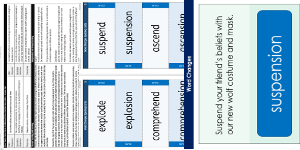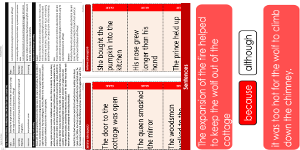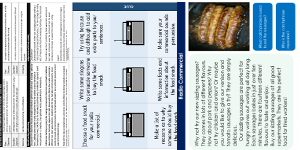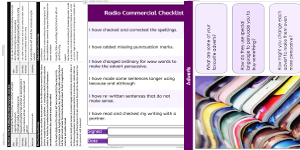Unit F – Story Sales

This English scheme of work for Key Stage Two gets the children to produce radio commercials and posters using persuasive language based on traditional stories, explore words with sion endings and use the conjunctions because and although to extend sentences. The class can make other types of adverts for food snacks.

Produce radio commercials and posters using persuasive language based on traditional stories to sell food snacks

Lesson One : Word Changes
Explore and record the changes that can happen to the spelling and meaning of some different word roots when adding the suffix sion to use when composing advert slogans

Lesson Two : Sentence Extensions
Practise extending some different sentences from a range of traditional tales using the conjunctions because and although to link extra phrases

Lesson Three : Commercial Planning
Practise selecting and recording the text for a radio commercial that can be used to advertise a type of food snack product based on a traditional tale

Lesson Four : Commercial Drafting
Investigate how to draft and edit the text for a radio commercial that can be used to sell a food snack using persuasive language that is based on a traditional tale

Lesson Five : Food Snack Adverts
Explore how to design and make some example adverts for radio commercials that can be used to sell a food snack based on branding from a traditional tale
-

Maths Arithmetic Assessment
Assess abilities in solving arithmetic number problems for addition, subtraction, multiplication and division when working with informal and formal written calculations
-

Environment
Identify and describe some of the special landscapes and locations that can be found in the world and reflect on how they can be protected and preserved for the future
-

Silent Letter Words
Explore and illustrate the meanings and spellings of some different words with silent letters when using them in a range of topics and scenarios
-

Complaint Letters
Explain and model how to format and structure writing when composing letters of complaint about different issues and scenarios
